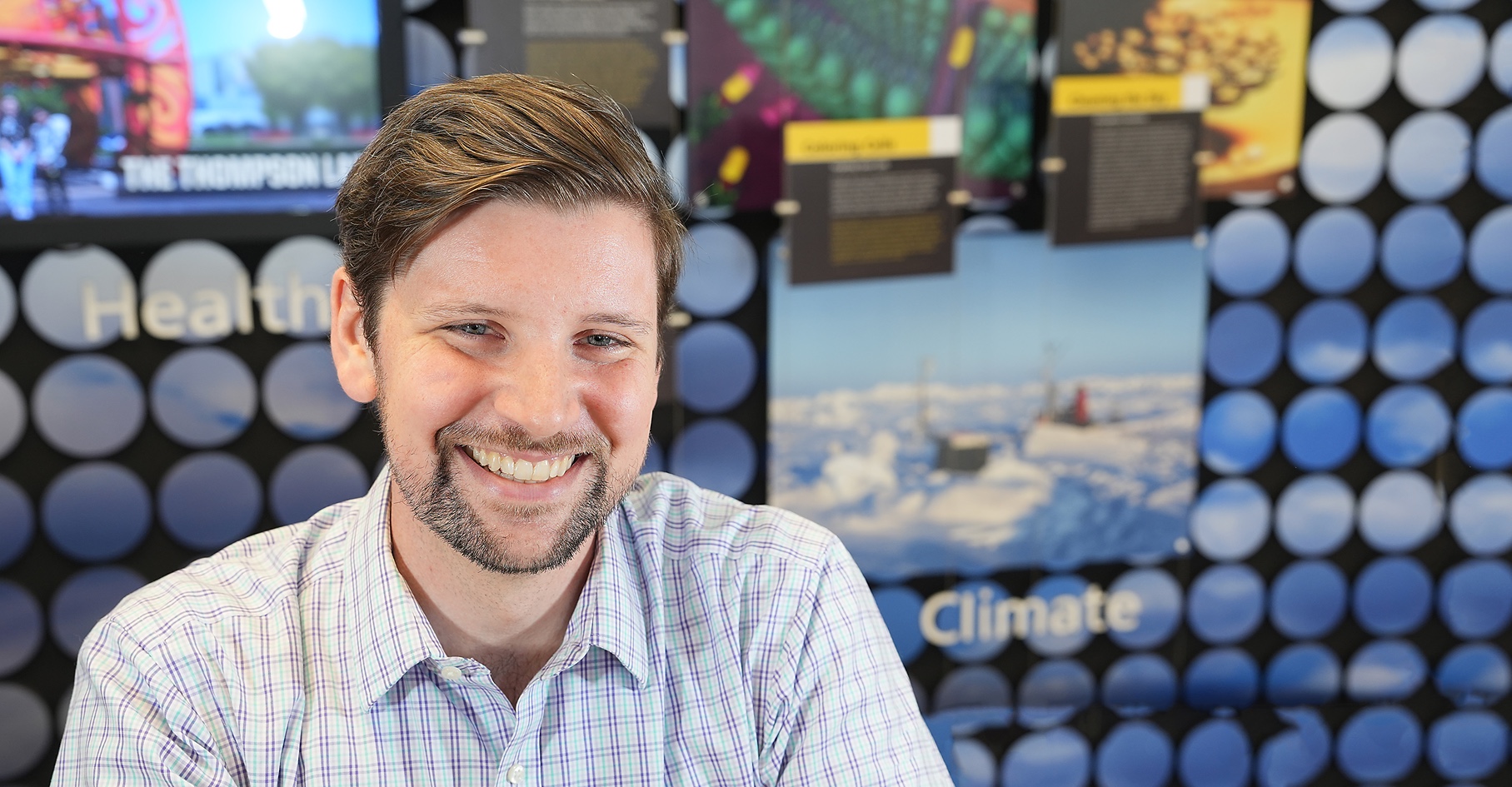NRES alumnus doing his part to protect the environment for generations to come
"Unless someone like you cares a whole awful lot, nothing is going to get better. It's not."
- The Lorax by Dr. Seuss
It’s hard not to call it serendipitous that the first book Ian Champ received as a child was "The Lorax," a book by Dr. Seuss that reminds readers that they can and should take action to protect the environment. Looking back now, Champ, Midwest Regional Hubs Manager at Clean Air Task Force and alumnus of Purdue’s Natural Resources and Environmental Science (NRES), says that early message and others in his childhood spurred his passion for improving our environment. That love led him to pursue a career in energy and climate for the benefit of future generations.
Finding his fit at Purdue
"I knew I wanted to be in the environmental field. I wanted to find a way to use my job to make a lasting impact in a positive way."- Ian Champ
When preparing for college, Champ knew that he wanted to do something to help the environment but was unsure of the best path to take. Champ recalls being drawn to the NRES program due to its flexibility. "I liked that the NRES program was self-directed. I could swap electives in-and-out to form a focus for my major and minor that fit my interests and goals. It was a lovely mix of hands-on, policy and economics classes that I wanted to take."
He credits the program and its personalized approach for helping him discover his niche in the environmental industry. "I had an incredibly close connection to my advisor,” Champ said. “I could email or drop in to hang out or grab a coffee. I always felt supported from the NRES staff and faculty."
He says those close relationships helped him find his place in the world of energy , including getting his first internship at Purdue University’s Wade Utility Plant. Champ credits that internship as his, "first step into the energy industry, and he hasn't looked back since.”
A journey from a reactionary to proactive focus
"The more time I spent in the energy sector, the more I realized that we all interact with energy daily. The way we source energy and how we use it or conserve it are all things that people do daily without necessarily thinking about. These decisions have a big impact on our greenhouse gas emissions and climate. I began to see then that if I wanted to make an impact, this was a straightforward way to do it."- Ian Champ
After Champ finished his internship and studies at Purdue, he decided to pursue a master's degree. at the Paul H. O'Neill School of Environmental Affairs (SPEA) at Indiana University. He credits NRES with preparing him well for his master’s program. He noted that he and Andrea Reifeis, another Purdue NRES graduate, went to the graduate program together, and they both felt like they hit the ground running.
“I remember sitting together in class, and we were both answering all of the questions. The professor asked us if we had transferred from another graduate program, and I told her ‘No, we’re from the Purdue NRES program.’”
From there, Champ headed to Washington, D.C., where he got his start as an energy consultant, an industry he stayed in for nearly a decade. The work drove him daily as he pursued ways to help companies and the United States government conserve energy. Champ was involved with printing conservation for the United States government, auditing federal facilities for energy and cost saving opportunities, and developing community selection processes for utility clients using environmental, equity and socio-economic indicators to find the communities where the energy efficiency programs would have the greatest impact. He credits his time as a consultant with helping him understand the true breadth of how energy usage impacts everyone and our climate.
Champ now lives in Chicago, after deciding to switch from consulting to the nonprofit sector with a move to become the Midwest Regional Hubs Manager for Clean Air Task Force. Champ is grateful for every opportunity that has led him here and is excited to switch the focus of his work from a reactionary mindset to a more proactive one.
"How do we replace diesel fuel? How do we capture carbon from industrial processes where you can't just switch over to renewable electricity, such as cement and steel? We are planning for the next 10 to 20 years."
Champ smiles as he thinks of his journey and the opportunities that have made a lasting impact since his days as a Boilermaker.
Whenever I think about where I am today, I go back to my time at Purdue. Purdue and the NRES program gave me a solid foundation to pursue my dreams of making a difference and, for that, I am forever grateful.
- Ian Champ, Midwest Regional Hubs Manager at Clean Air Task Force and alumnus of Purdue’s Natural Resources and Environmental Science (NRES).







